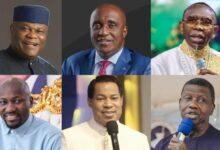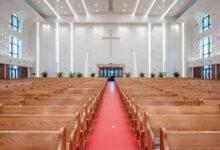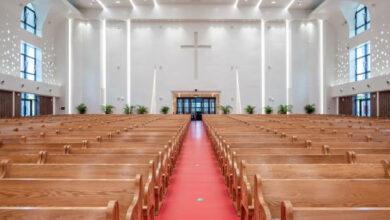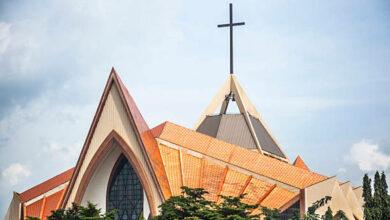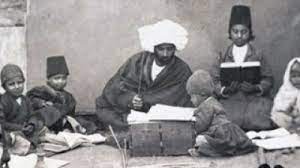
The Role Of Religion In National Development In Nigeria
The Role Of Religion In National Development In Nigeria – Religion plays a significant role in the national development of Nigeria. It influences the country’s cultural, social, and political landscape, and serves as a source of guidance, inspiration, and unity for its people. In this article, we will dwell more on the roles of religion in national development in Nigeria. The Role Of Religion In National Development In Nigeria
What Is National Development?
National development refers to the process of improving the economic, political, and social well-being of a country. National development is often driven by policies and initiatives designed to promote economic growth and improve the standard of living for a country’s citizens.
👉 Relocate to Canada Today!
Live, Study and Work in Canada. No Payment is Required! Hurry Now click here to Apply >> Immigrate to CanadaRead Also: The Role of Citizenship Education in Promoting National Consciousness and Unity in Nigeria
Forms Of National Development
There are different forms of national development, they include:
- Economic Development
- Social Development Do Not Drag Newsmen into Your Politics, Kogi NUJ Cautions Politicians
- Environmental Development
- Political Development
- Cultural Development
The Concept of Religion
Religion is a set of beliefs, and practices that relate to a higher power or deity. These beliefs often include the idea of a spiritual realm, and they may involve the worship of gods or goddesses. Religion is often considered a central aspect of a person’s identity and culture, and it can play a significant role in shaping their values, behaviors, and social interactions. Some common elements of religion include prayer, ritual, and the study of sacred texts. Religion can also involve the pursuit of spiritual enlightenment or the search for meaning and purpose in life.Information Guide Nigeria
Read Also: The Role of Local Government in Education in Nigeria
Types of Religion in Nigeria
Nigeria is a country with a rich and diverse religious landscape. The country is home to a wide variety of different religious traditions and practices, reflecting its complex history and the diverse backgrounds of its people.
- Islam
- Christianity
- African Traditional Religion (ATR)
- Minority Religion: (i.e. Rastafarianism, Baha’i)
- Atheist: (non-religious)
Despite the diversity of religious beliefs and practices in Nigeria, the country has a long history of religious tolerance and coexistence, and people of all faiths.
Religion and National Development in Nigeria
Religion plays a significant role in the national development of Nigeria, a country with a diverse and complex society that is home to many different religions.How To Register Wema Bank Transfer Code
One of the ways in which religion contributes to national development in Nigeria is through the education and personal growth opportunities provided by religious institutions. Many churches, mosques, and other religious organizations offer educational programs and resources that can help individuals improve their skills and knowledge, and contribute to their personal and professional development.
👉 Relocate to Canada Today!
Live, Study and Work in Canada. No Payment is Required! Hurry Now click here to Apply >> Immigrate to CanadaReligion can also promote social and economic development by providing support and assistance to those in need. Many religious organizations in Nigeria operate charities and other social service programs that provide aid to the poor, the sick, and other disadvantaged groups. This support can help to reduce poverty and promote more equitable and sustainable development.
Read Also: The Role of Education in Rural Development in Nigeria
In addition, religion can serve as a source of moral guidance and inspiration for individuals and communities, encouraging people to work towards the common good and contribute to the development of their country.
However, religion can also pose challenges to national development in Nigeria. Tensions and conflicts between different religious groups can lead to violence and social unrest, which can undermine development efforts. It is important for the government and other stakeholders to work towards religious tolerance and understanding in order to promote peace and stability and facilitate the positive contributions of religion to national development.
Roles Of Religion In National Development In Nigeria?
The roles of religion in national development in Nigeria are as follows: Romantic Love Messages
1. Providing Moral Guidance:
Religion serves as a source of moral guidance for individuals and communities in Nigeria. It provides a set of values, beliefs, and principles that help people make good decisions and lead moral lives. This, in turn, helps to build a strong, cohesive, and virtuous society, which is essential for national development.
2. Strengthening Social Bonds:
Religion can help to strengthen social bonds and foster a sense of community and belonging among the people of Nigeria. It provides a platform for people to come together and engage in shared religious activities, such as prayer, worship, and charity work. This helps to build strong relationships and create a sense of unity and solidarity among the people, which is crucial for national development.
3. Promoting Education:
Many religious organizations in Nigeria provide educational opportunities for their members and the broader community. They run schools, universities, and other educational institutions that provide quality education and promote the acquisition of knowledge and skills. This helps to improve the overall level of education in the country and supports national development.Good Morning Love Message
Read Also: The Role of Universal Basic Education in Nigeria
4. Encouraging Economic Growth:
Religion can also play a role in promoting economic growth in Nigeria. Many religious organizations run businesses and engage in economic activities that generate income and create jobs. They also provide financial assistance and support to their members and the broader community, which helps to stimulate economic activity and contribute to national development.NYSC Portal
5. Providing Healthcare:
Some religious organizations in Nigeria run hospitals, clinics, and other healthcare facilities that provide medical care and treatment to their members and the broader community. This helps to improve the overall level of healthcare in the country and support national development.
6. Advocating For Social Justice:
Religion can also serve as a force for social justice in Nigeria. Many religious leaders and organizations advocate for the rights and welfare of the poor, marginalized, and disadvantaged members of society. They campaign for policies and initiatives that aim to address inequality, discrimination, and other social injustices, and support the development of a more equitable and inclusive society.JAMB Portal
7. Influencing Political Decisions:
Religion can also influence political decisions and policy-making in Nigeria. Many religious leaders and organizations have a strong presence in the country’s political landscape and use their influence to shape public opinion and advocate for policies that align with their religious values and beliefs. This can help to promote positive social and political change and support national development.
8. Social Cohesion:
Religion often plays a significant role in bringing people together and fostering a sense of community and belonging. In Nigeria, religious organizations can help to promote social cohesion and unity within the country, which can be important for national development.
9. Education:
Many religious organizations in Nigeria operate schools and other educational institutions. These institutions can provide important education and training to young people, helping to prepare them for future roles as productive citizens and contributing to the overall development of the country.
Read Also: The Role of Television in Electoral Education in Nigeria: A case study of NTA
10. Healthcare:
Some religious organizations in Nigeria also operate hospitals and other healthcare facilities, providing important medical services to people in need. This can be particularly important in areas where access to healthcare is limited, and can help to improve the overall health and well-being of the population, which is essential for national development.
Conclusion
Religion plays a crucial role in the national development of Nigeria. It provides moral guidance, strengthens social bonds, promotes education, encourages economic growth, provides healthcare, advocates for social justice, and influences political decisions. By fulfilling these roles, religion plays a vital role in supporting the development of Nigeria and its people.
Check JAMB RESULT
Check and Confirm: How much is Dollar to Naira
